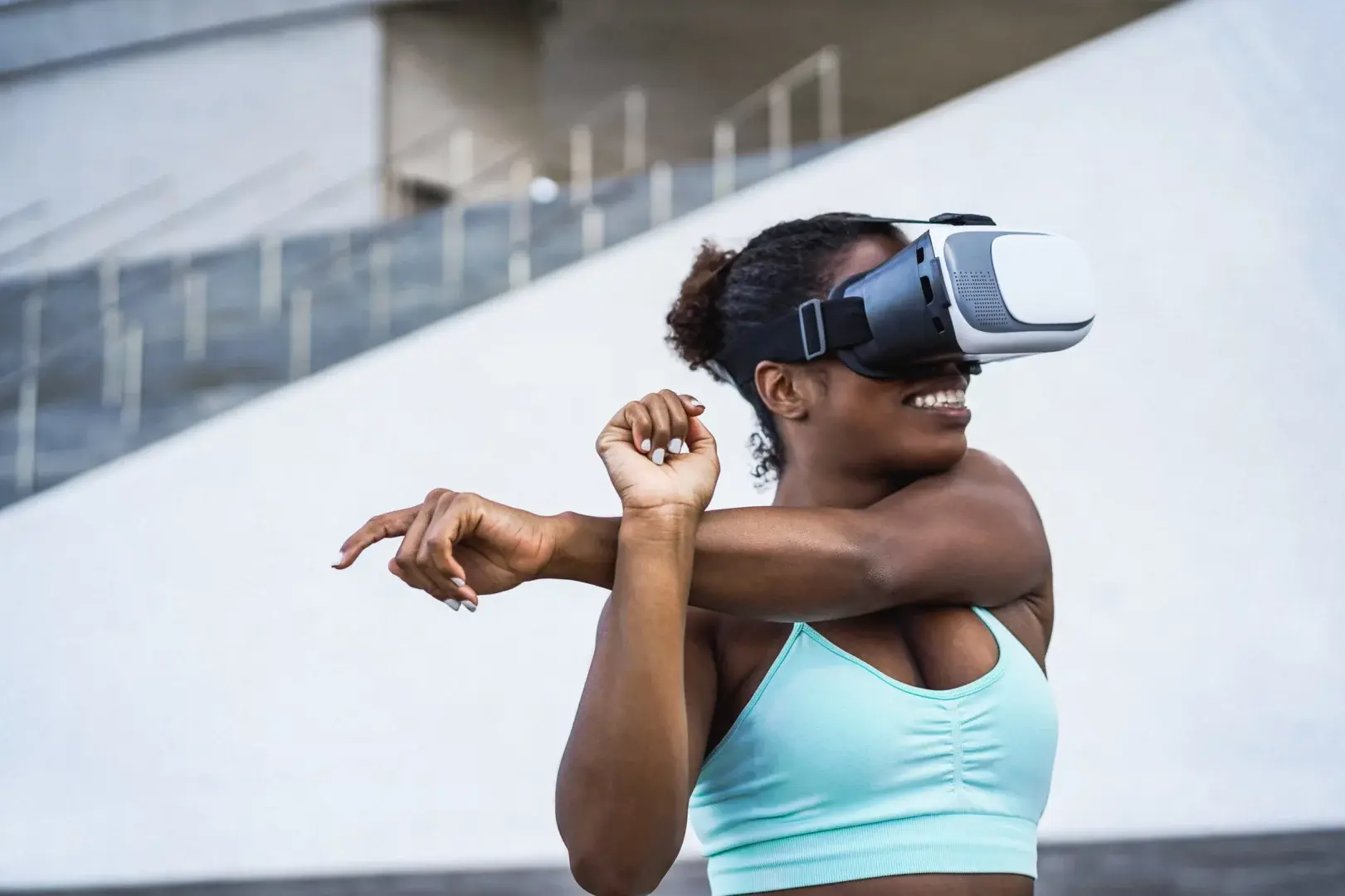Sports have always been a reflection of human ambition, endurance, and innovation. From the ancient Olympic Games to today’s global athletic spectacles, the pursuit of excellence has driven athletes to push the boundaries of what the human body can achieve. But as we move deeper into the 21st century, sports are evolving faster than ever. Technology, data analytics, psychology, and changing societal values are redefining not just how games are played, but how athletes train, recover, and inspire the world.
This article explores the transformation of modern sports — from high-tech training methods and digital fan engagement to mental health awareness and sustainability in athletics.
1. The Technological Revolution in Sports
Technology has become one of the most powerful forces shaping modern sports. From wearables and sensors to artificial intelligence and virtual reality, innovations are helping athletes, coaches, and teams gain an edge.
Wearable technology such as GPS trackers, heart-rate monitors, and motion sensors allow real-time analysis of an athlete’s performance. Coaches can now monitor speed, distance, impact, and fatigue levels to fine-tune training programs and prevent injuries.
In elite competitions, AI-powered analytics are transforming game strategies. Data-driven insights allow teams to predict opponents’ tactics, optimize player positioning, and make informed in-game decisions. Sports like basketball, soccer, and tennis now use AI to track player movements and performance metrics with incredible precision.
Virtual reality (VR) is another game-changer. Athletes use VR simulations to visualize plays, practice reactions, and improve decision-making without physical strain. In sports like American football or Formula 1 racing, VR training helps athletes mentally rehearse complex scenarios, enhancing focus and confidence.
Even officiating has entered the digital age. Technologies like VAR (Video Assistant Referee) in soccer, Hawk-Eye in tennis, and automated line-calling in baseball are ensuring fairer, more accurate outcomes.
The fusion of sports and technology is not just improving performance — it’s transforming the way fans engage with the game.
2. The Rise of Data-Driven Training and Sports Science
Modern training is no longer about brute force and repetition; it’s about precision and balance. Sports science — combining physiology, biomechanics, and nutrition — has become essential in shaping champions.
Athletes today train using data-backed programs that analyze every movement, recovery rate, and nutritional intake. Advanced tools like motion-capture systems and force plates measure muscle output and balance, helping athletes perfect their form and prevent injury.
Recovery has also become a science. Ice baths, cryotherapy, infrared saunas, and compression therapy are part of daily routines for professionals. Sleep monitoring and mental recovery are equally important, as researchers recognize that rest and resilience are as critical as training volume.
Nutrition, too, has evolved beyond simple meal plans. Personalized diets — based on DNA testing and metabolic profiling — are helping athletes maximize energy and recovery. The focus has shifted to functional nutrition, where every calorie supports specific goals: endurance, strength, or cognitive performance.
In short, sports science has transformed athletes from competitors into finely tuned machines — capable of sustained excellence and longer careers.
3. The Mental Game: Psychology and Performance
Physical ability alone no longer defines success in sports. Mental strength, focus, and emotional control are equally vital. The stigma surrounding mental health in athletics has faded as more top athletes speak openly about their struggles.
Icons like Simone Biles, Naomi Osaka, and Michael Phelps have brought global attention to the psychological pressures athletes face. Their courage has redefined the conversation — making mental well-being as important as physical training.
Today, sports psychologists are integral members of coaching teams. They help athletes develop mindfulness, visualization, and stress management skills. Visualization techniques, for instance, allow athletes to mentally rehearse success before it happens — building confidence and reducing anxiety under pressure.
Mindfulness practices, including meditation and breathing exercises, are now routine in team environments. The ability to stay calm and present during high-stakes moments often separates good athletes from great ones.
The message is clear: the future of sports belongs not only to the strongest but to the most mentally resilient.

4. Fan Engagement in the Digital Era
The way fans consume sports has also been transformed. Social media, streaming platforms, and virtual experiences have made sports more interactive than ever.
Live streaming and digital fan zones allow supporters to watch and engage with games from anywhere in the world. Meanwhile, social platforms like TikTok and Instagram have turned athletes into global influencers — blurring the line between sports and entertainment.
Esports, fantasy leagues, and virtual tournaments are also expanding the definition of what it means to be a “sports fan.” Younger audiences are drawn to interactive, tech-driven experiences that combine gaming and athletic competition.
Even in traditional sports, augmented reality (AR) and virtual reality (VR) are enhancing fan experiences. Imagine watching a soccer match from the perspective of a player on the field or experiencing a live NBA game in immersive 3D from your living room — these innovations are already becoming reality.
Sports organizations are also using blockchain technology and NFTs to create digital collectibles, offering fans new ways to own and support their favorite teams.
5. The Push for Equality and Diversity in Sports
Modern sports are becoming more inclusive and socially conscious. The push for gender equality, diversity, and fair representation has gained global momentum.
Women’s sports have seen exponential growth in both popularity and investment. Events like the FIFA Women’s World Cup and the WNBA have drawn record audiences, proving that the demand for women’s sports is stronger than ever.
Additionally, movements for racial equality and LGBTQ+ inclusion have reshaped the culture of sports. Athletes are using their platforms to advocate for social justice, inspiring millions beyond the playing field.
Sports are no longer just games — they are platforms for global change, unity, and empowerment.
6. Sustainability and the Green Sports Movement
With climate change becoming a major global concern, sports organizations are embracing sustainability. From eco-friendly stadiums to carbon-neutral events, the industry is striving to reduce its environmental impact.
Olympic venues and major football arenas are now built with recycled materials and renewable energy systems. Events like the Formula E championship — featuring fully electric race cars — showcase how performance and sustainability can coexist.
Athletes themselves are becoming advocates for the planet, using their influence to promote eco-friendly practices and sustainable brands. The intersection of sports and environmental responsibility is now a defining characteristic of 21st-century athletics.
7. The Future of Sports: Where Innovation Meets Humanity
As sports continue to evolve, the line between human and machine performance grows thinner. AI coaching systems, biomechanical implants, and smart clothing that adjusts to body temperature hint at a future where athletes are enhanced by technology.
However, despite these innovations, the heart of sports remains unchanged — the human spirit. The thrill of competition, the unity of fans, and the emotional highs and lows are what make sports timeless.
The next generation of athletes will not only be faster and stronger but also more intelligent, empathetic, and globally connected. Sports will remain one of the few universal languages that unite people across cultures, races, and beliefs.

Conclusion: The Game Beyond the Game
The evolution of modern sports is about more than records or medals — it’s about progress. Technology, psychology, and sustainability are transforming how we play, train, and connect. But at its core, sports will always be about passion, teamwork, and resilience.
Whether it’s a child playing on a local field or a professional competing on the world stage, the essence of sports remains the same — the relentless pursuit of improvement and the shared joy of the game.
In 2025 and beyond, sports are not just entertainment — they are a global force for innovation, inclusion, and inspiration.

